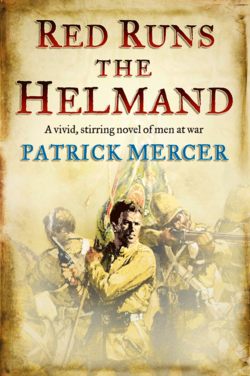Читать книгу Red Runs the Helmand - Patrick Mercer - Страница 7
ОглавлениеAuthor’s Note
I’m amazed that anyone can soldier in Afghanistan at all. During several recent visits to that country I have found the heat almost unbearable and the ground unforgiving. Today’s soldiers have the advantage of wheeled and air transport (well, some of the time) but much of their fighting is done on foot burdened with personal loads of electronic equipment, body armour, helmets and the like that would have horrified their predecessors.
Most remarkably, though, the soldier of 1880, while carrying much less kit, survived on a fraction of the water that his great-great-grandson does. It’s noticeable how much logistic effort in the Helmand valley today is absorbed by the carrying forward of potable water – an effort that is directly equivalent to that needed for animal fodder in the 1880s. It has taken me some time to understand the priorities of an army in the field in the nineteenth century and the different privations they suffered.
Another challenge has been to grasp how the relationship between officers and men in the Indian armies actually worked. I’ve modelled this on the modern Gurkha troops alongside whom I served and the way that their British officers communicated with them. Nowadays, officers in Gurkha regiments have to pass exams in the language of their men. While a similar system was in its infancy at the time of Maiwand, British officers would have been surrounded by native dialects both on and off duty and this, I have no doubt, would have encouraged them to learn the language. But imagine how difficult communications would have been between, say, the 66th and Jacob’s Rifles; I’ve tried to capture some of this friction.
The language of my British characters, for obvious reasons, lacks the casual racism of the later nineteenth century, but I’ve tried to reflect the humour, candour and pragmatism of the time. In the same way, I believe that relationships then between officers and men in the British Regular Army were very similar to those of today. The film industry is, perhaps, most to blame for the impression that Victorian officers treated their men with a stiff, unbending formality but contemporary diaries and letters would utterly refute that. So, I’ve taken the heartbeat of the men with whom I served a hundred years later and sprinkled the way in which they spoke and joked with the military patois of imperial times; I hope I’ve got it right.
Anthony Morgan has now fought in the Crimea, the great Mutiny and the Second Afghan War, fearing much, slaughtering many and seeing more horrors than ten men. I’ve visited the home of the real Morgan in a delightful corner of County Cork and been treated with great courtesy by his descendants. It was there that Anthony actually retired to raise a family, pursue foxes and all other forms of wildlife and have a walk-on part in the Somerville and Ross books. I suspect that it is now time to let the fictional character enjoy some of the same.
Last, I’ve taken advice on almost everything in this book. If something is obscure, not covered in the glossary or just plain wrong, then it is entirely my own fault.
Patrick Mercer
Skegby
Nottinghamshire
